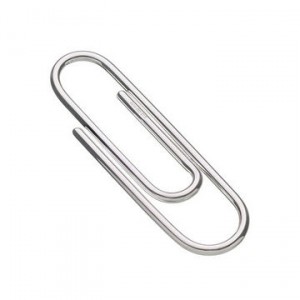…you’ve just got your lesson ready and then you drop the box of paperclips all over the floor.
Of course, you might have been lucky enough to avoid this, but personally in 7 years of teaching I’m sure I must have done this at least 20 times. So, rather than just throw in the towel, I decided to take practical steps against those little annoyances that are produced not by other teachers (uncleaned boards) or students (“Teacher, I’ve done this grammar before”) but by the interaction between inanimate objects and myself.
First I’d like to get a few things off my chest. Don’t you just hate it when…
- You have the best prepared lesson ever and then you arrive in the classroom without any pens
- You have to cue a pron cassette
- Your pens run out half way through the lesson
- There are 25 pens in the room and none of them work
- You are cutting up a set of cards and one badly lined up guillotine cut ruins the whole pack
- You get to the listening in the lesson and the cassette recorder doesn’t work. After the class someone tells you, “Oh yer, that one hasn’t worked for weeks.”
- You can’t find the book you need
- You have to search the whole building just to find a hole punch
- The photocopier breaks down just before you reach it
…or is it just me?
In case you have had some of these experiences, and you are starting to get annoyed again just thinking about them, I’d like to share some of my experiences of trying to make sure they happen as little as possible. As trivial as they might seem they can quickly take the shine of an otherwise great teaching day, and they always reduce the time you have available for more important thing.
First, the paperclips problem can be lessened by putting them in a narrow-necked container like a jar. It doesn’t guarantee you don’t drop it, but only a few get scattered on the floor.
Forgetting little things like (1) can be tackled by putting reminder notices on the teachers’ room door and a checklist on the top of the standard lesson plan (“Have you got (a) pens (b) register…?”). Unfortunately, these systems have a tendency of only working when they are new and then just becoming part of the furniture.
I’ve also tried a couple of methods to solve (4). One is to label the pens with either the teachers’ names or the classroom numbers and ask for the old used up ones before giving out new ones. Again, it works for a while and then…
The solutions for (5) and (9) are the same- find ways of doing the same activities without photocopying and cutting up all the time. This can include having an envelope full of blank scraps of paper for students to create their own cards on and/ or having a filing cabinet full of made up sets of popular games. See [1] for more ideas on this.
After trying several schemes for broken apparatus like (6), I’ve found the best one is to have a checklist actually in the classroom where teachers write any problems they have with things like air-conditioning and flaps on chairs, as people have usually forgotten about it by the time they get back to the teachers’ room. Someone then needs to go round and quickly check the lists once a week.
My little scheme for (8) is perhaps the most simple and successful. Labelling where each of the pieces of teachers’ room hardware like staplers and guillotines belong (“Reception” or “Upstairs teachers’ room”) and a list in each of these positions of what should be there works a treat. Someone then needs to check them once a week, to cut down on perhaps the biggest time waster of all.
Finally, if can’t find that book (7) it probably is, unfortunately, another teacher’s fault. Seeing as how teachers aren’t suddenly going to get good at not taking things into class or putting them back in place, it’s probably best to blame it on the objects and work out some systems. One is to make sure there is a fixed place for this stuff, by clearly labelling shelves- including perhaps filing materials like coursebooks in A-Z order. The next is to make sure there is only one copy of each book, as the more copies there are the more likely the teachers are to take one away thinking there must be a back-up somewhere. Finally, you’d be amazed by how often the book you are looking for is just tucked inside another one, especially it it’s small.
The others, I’m afraid, are ones I still haven’t found solutions for. My success in reducing some of the ones above has made me feel optimistic that there must be a solution out there somewhere, though, so if you can save me from annoyances, at least until I step out of the school, I’d be very grateful to hear from you…

